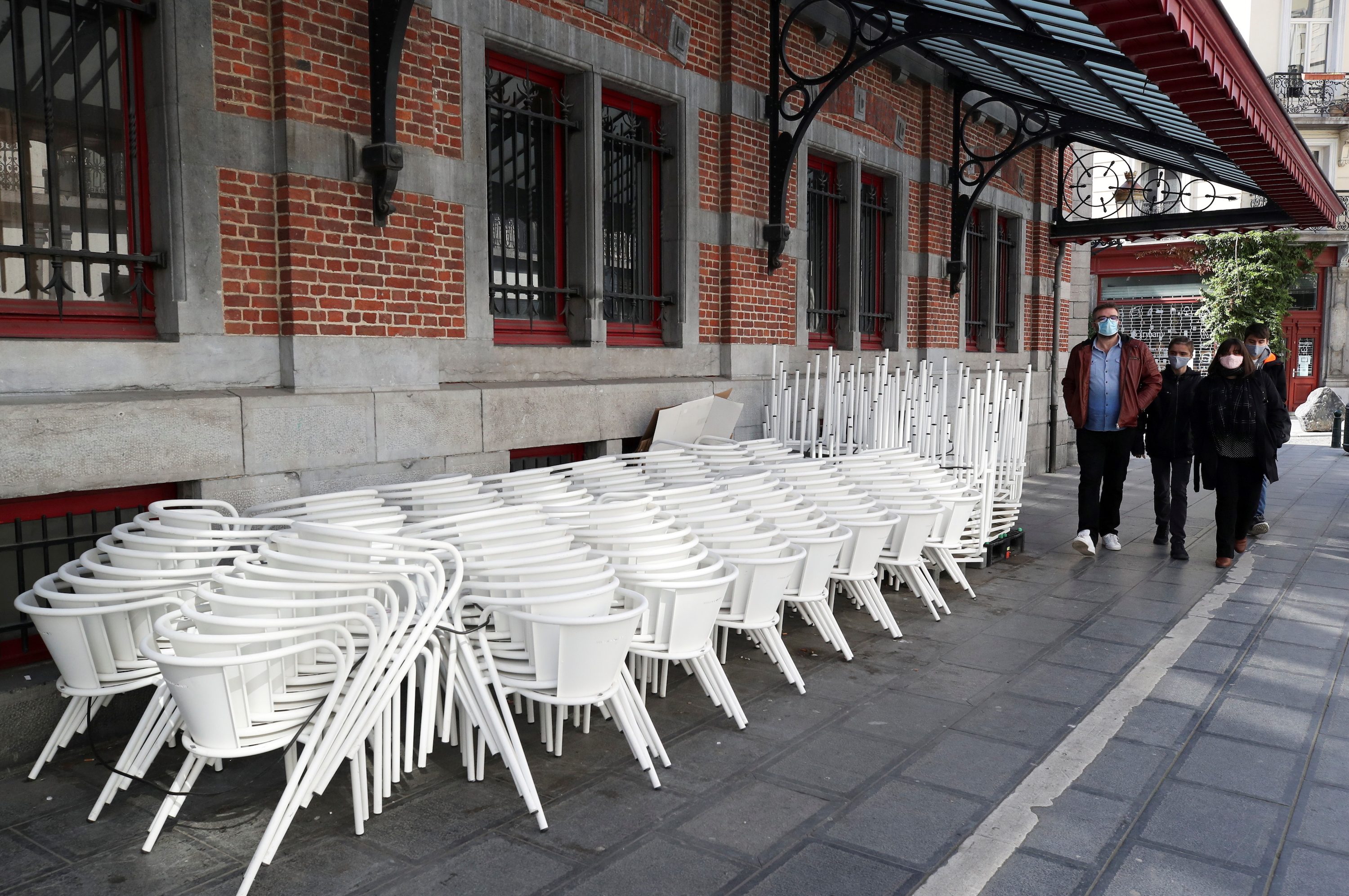SUMMARY
This is AI generated summarization, which may have errors. For context, always refer to the full article.

The eurozone economy dipped into a second technical recession after a smaller than expected contraction in the 1st quarter, but is now firmly set for recovery as pandemic curbs are lifted amid accelerating vaccination campaigns, economists said.
The European Union’s statistics office Eurostat said gross domestic product (GDP) in the 19 countries sharing the euro contracted 0.6% quarter-on-quarter for a 1.8% year-on-year fall, putting the single currency area in a second technical recession in 12 months. Economists polled by Reuters had expected a 0.8% quarterly and a 2% annual decline.
“Underlying resilience shows that the economy is set for its (somewhat late) start to the pandemic rebound, meaning that the picture of a lackluster eurozone economy is set to change quickly,” said Bert Colijn, eurozone economist at ING bank.
“Domestic demand is set for a strong rebound when economies reopen and the manufacturing recovery seems to only be limited by its own supply at the moment. While late out of the starting blocks, the eurozone is set for its start to the pandemic rebound,” he said.
The 1st quarter contraction was caused mainly by a 1.7% quarterly slump in the biggest economy Germany, as a pandemic lockdown since November hit private consumption.
It was mitigated by 0.4% quarterly growth in second biggest France, as consumer spending and business investment held up despite coronavirus curbs. The country only entered its third national lockdown at the end of March.
“The recession is a thing of the past. With progressive vaccinations and a seasonally slower spread of the coronavirus, infection figures should continue to fall in the coming weeks,” said Christoph Weil, senior economist at Commerzbank.
“With the shops open, social life will resume and economic activity will pick up noticeably. By summer, restaurants, hotels, and other contact-intensive services should also be able to resume normal operations. We expect the economy to return to its pre-crisis level by the end of this year,” Weil said.
Eurostat also said eurozone consumer prices rose 0.6% month-on-month in April for a 1.6% year-on-year gain, as expected by economists polled by Reuters. But rather than driven by stronger economic activity, the acceleration of price growth was driven by a 10.3% year-on-year surge in energy prices.
Without the volatile energy and unprocessed food components, or what the European Central Bank (ECB) calls core inflation, prices rose 0.5% month-on-month for a 0.8% year-on-year rise, a deceleration from the 1% year-on-year rate the month before.
This core inflation drop is likely to reinforce calls by ECB doves to maintain the stimulus to the economy and hold off on tapering pandemic bond purchases until growth firmly takes hold.
“The ECB will be challenged significantly in terms of communication over the coming meetings. With inflation approaching 2%, once GDP growth jumps…it will become key for the ECB to get the message across that inflationary pressures look to be transitory for now,” ING’s Colijn said.
Eurostat also said that eurozone unemployment fell in March to 8.1% of the workforce, or to 13.166 million people, from a downwardly revised 8.2% in February or 13.375 million people, defying expectations of a rise to 8.3%. – Rappler.com
Add a comment
How does this make you feel?





There are no comments yet. Add your comment to start the conversation.